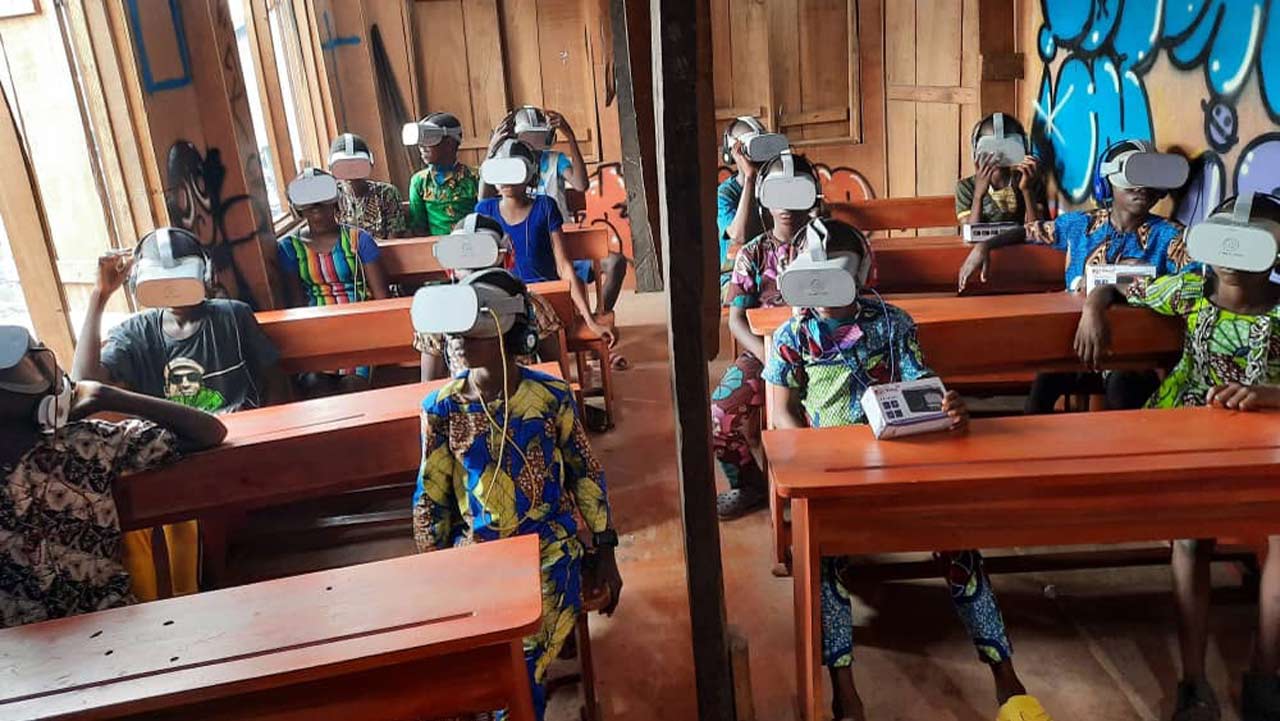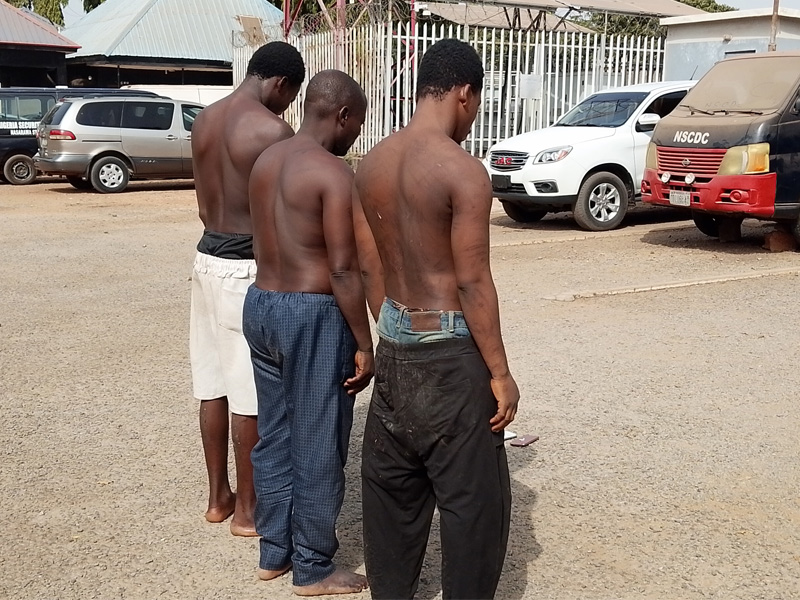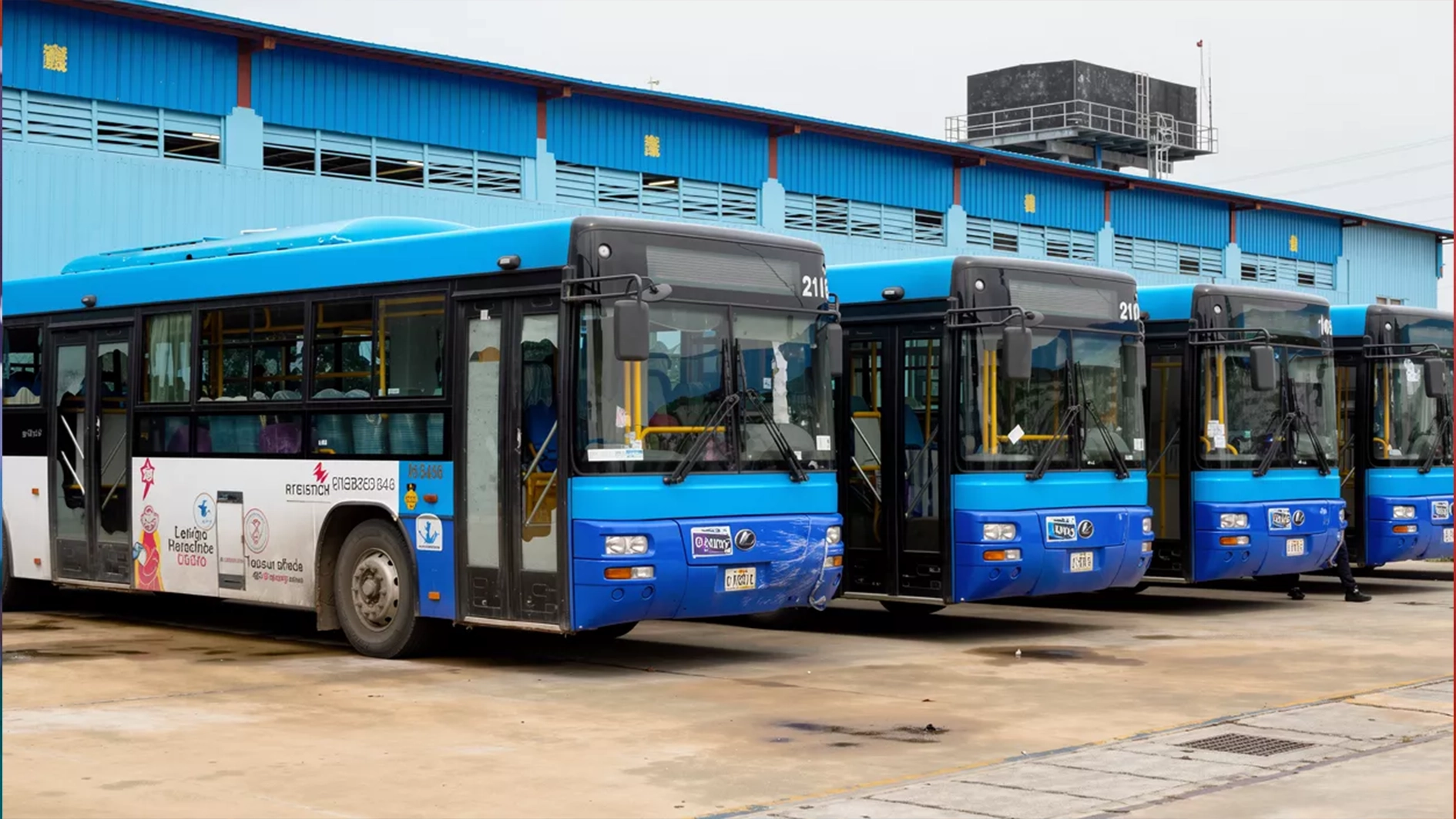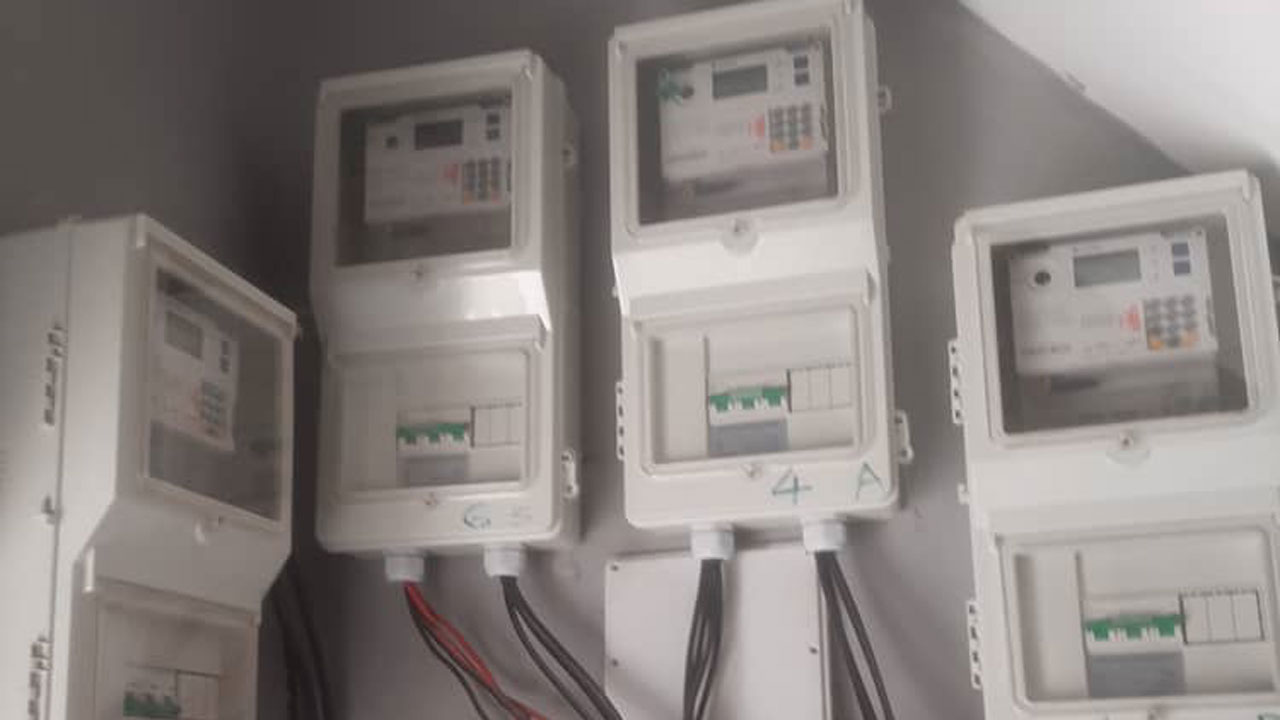
A few weeks after his Virtual Reality (VR) film, Daughter of Chibok, won the 2019 Lion Award for Best Story at the Venice International Film Festival in September, documentary filmmaker Joel Kachi Benson returned to Chibok community in Borno State to fulfill his promise of touching their lives positively through proceeds from the project.
The charity project, which commenced with the distribute fertilisers, pesticides, and ox-driven plows to the villagers, took a different turn when the team resolved to light up Chibok community with solar power. The full kit comes with a solar panel connected to a small solar generator, with two charging points where they could charge their phones. It also has a radio and a standing fan; each home got one. And in what seems like an added advantage, youths from the community, including girls, were also trained on installation of solar panel.
Having made impact up North, Benson and his team turned attention to the Noah Whanyinna School in Makoko area of Lagos. Situated at the waterfront, the Nursery and Primary School founded by Noah Shemede remains the only school in Makoko Waterfront. Born, raised and still lives in the community, Noah see the school project as his own way of giving back to the community that made him.
Today, the school stands magnificently on the waterfront, having received a facelift last year through the help of She Builds Life Foundation. The floating structure, which existed there before, was replaced with another wooden structure with a sandy assembly ground that is supported by planks to prevent it from sinking.
With no electricity in the whole of Makoko Waterfront, the only way to power the school was through generating set. However, all that changed recently when Joel Benson and his team intervened. For the first time in the school, and perhaps, first time in Makoko Waterfront, they had access to electricity through the solar power installed by the filmmaker and his partners.
Benson’s relationship with Shemede dates back to 2010 when he was still working with the celebrity photographer Kelechi Amadi-Obi. They had come to do a shooting for a TV personality, Funmi Iyanda. Since then, the two developed a cordial relationship, with Benson rendering help to the school.
“I’ve known Noah for about 10 years now. The first time I came here, I was like, ‘what in the world is this?’ You know, we struck up a relationship. Then, this school was a mess, but I appreciate his passion. So, over the years, the little that I have, I would always give and we stayed close as friends.”
On what led to the installation of solar power for the school, Benson narrated how his friends from Israel took interest in Makoko during their visit earlier in the year.
“I was doing virtual reality training for my team and I brought in some of my friends from Israel to hang out with us for about a week. On our way from the airport, on the Third Mainland Bridge, they saw Makoko community. When we go to the house they asked if they could visit the place and I said, ‘sure.’ So, we came here. Spur of the moment decision, we just agreed to do the project film for that training in the school and use the content to raise funds to support them; that was how it started,” he recalled.
The film project was still at post-production level when Benson showed some clips to Adaobi Oniwinde, the Policy and Partnerships Manager of All On, an investment company seeded by Shell. Immediately, she picked interest in the charity project.
“Amazing woman; my meeting with her is another story. She was like, ‘wow, this is fantastic, why are you making it? What can we do for these children?’ I said, ‘well, while we were filming, I could hear the kids screaming on top of their voices; the generator was really loud.’ Adaobi works in the power sector (clean energy), so, it was a no brainier for her. She said, ‘You know what, why don’t we just give them solar?’ That’s really how it started; we took it up to make a difference in the lives of these kids.”
Just when the project was to commence, there was nationwide lockdown as a result of the COVID-19 pandemic.
“About three weeks into the lockdown, Adaobi called me and said, ‘Joel, we have to do this; we can’t just leave this thing like that.’ I said to her, ‘that’s a good idea, but if you go and install solar power, schools are not in session, nothing is happening, what’s the value of the solar?”
Benson then reached out to Noah to know how the children were coping with the lockdown. From that conversation, a new idea was conceived.
“You know, my kids, I’m privileged to be able to send them to a good school where they are doing online learning during lockdown; that’s the same with a lot of us. But Noah told me he’s been worried about the situation, as most of the children had gone back to fishing.”
Shemede’s fear stemmed from the troubles he went through to convince parents to send their wards to school when he started in 2009. He recalled inviting about 100 parents to educate them on the importance of education, but only 64 responded positively.
“The main vocation here is fishing, so naturally, parents want their children to toe that path. They believe fishing is everything; I also had the same mindset. My parents used to flog me before I could go to school; I hated school then. My mindset changed however when I went to secondary school on land; I met people from different backgrounds and different ideals. They made me realise the importance of education. So, I made up my mind to groom the next generation, to enlighten them on the importance of education. We have about 270 students from here in college today,” Shemede hinted.
As way of engaging the children academically, Noah got transistor radios, which he intended to share to primary school pupils to connect to the radio teaching by the Lagos State Government. With that already in place, Benson came up with another plan.
“The radio programme is targeted at kids in senior primary, but what about the younger kids, what can we do? I felt that if we could get like two or three TV sets here and connect them to the Internet, the kids could come here to watch cartoons and other educational programmes. So, I called Adaobi and said, ‘this is not going to be solar for solar sake; this solar has to make an impact as well. Let’s get smart TVs, connect them to the Internet, let’s provide access for these kids to go online and be guided by volunteers, who can take them to sites online where they can learn and watch educational contents designed for kids.’ That was how we raised money and made it happen. Trust me, you can catch any child with TV. In the past, it would have been a struggle to get the children to come, but now, the children are the ones forcing their way to come,” he said.
As for the film, Noah’s Raft, Benson hinted, “It’s in postproduction now; we are editing. It’s a project on the school; a simple story about a guy that was sent out of the community to go and study, but chose to come back and pay it forward for the next generation. He could have easily gone and stayed in Surulere and Makoko would have become part of his past, but he chose to make Makoko his present and his future.”
To Benson, beyond its commercial value, documentary and filmmaking generally should do some good.
“Here’s the beautiful thing about making films for impact; maybe I’ve found what I need to be doing with my films. This film hasn’t even come out, but it has already achieved what it was designed to achieve. I mean, this is the first time they are having a solar installation in this community and the film is not even yet out; I’m happy. Look, I’m done. If that’s the only thing the film was able to achieve for this school, mission accomplished,” he enthused.
Meanwhile, on this year’s Children’s Day, Noah and his team were in the community to celebrate with the kids, who had the opportunity of experiencing Virtual Reality (VR).
“We came here and we took them to Ethiopia through Virtual Reality. They were able to talk about it, share their experience; in VR, boundaries don’t exist. This is a powerful tool we can use to educate kids, especially at this age. Imagine a world where you cannot travel anymore or travel is restricted, how do you show kids beyond picture and text? How do you take them to these places? I think that’s what VR is designed to do.”
He continued: “I’ve always been passionate about using virtual reality for impact story telling and education purposes. Yes, you can use it to do real estate and other kinds of things, but for me, the impact of VR is in education; being able to take people to places that ordinarily they will not be able to go to. From there, they can experience things that they don’t have access to and commit to making a change,” he said.
According to Adaobi Oniwinde, there’s need for government and well meaning individuals to pay attention to communities like Makoko, especially in the area of education.
“I’m a mother of four kids and a complete sucker for child-related causes. Joel put me in touch with Noah, who I am told started the only primary school in Makoko. So, I made a personal donation of a solar installation to power the school. My experiment might have ended at the solar installation if I didn’t go there to meet the beneficiaries; the kids, the mothers and the community elders, who showed such deep appreciation for the installation. The needs are immense. The kids are home as a result of the COVID induced lockdown. I know what that’s doing to my kids, who are privileged to have online schooling and have a bit of structure. So, we decided to not just power the school house, but to provide internet access and smart TVs in a few of the classrooms to ensure that the kids have access to learning even if not formal tutoring.”
However, she said, “so much more is needed; on a macro level, a few more schools must be built. The Noah Whanyinna School currently only enrolls 250 primary school kids. That’s less than adequate for a community of about 250,000 people and growing. On a micro level, they need school supplies, books, meals etc. These kids are smart and deserve every opportunity they can get.”
Founded by Noah, The Whanyinna Children Foundation is a not for-profit and non-political organisation registered to be the legal custodian of the Whanyinna Nursery and Primary School, Makoko Waterfront. The school, which started out of love for education and passion, according to the founder, aims at equipping the future of the community.
“We believe that when children have access to their rights, they grow as independent individuals, who can break through the cycle of poverty to take their future into their own hands and play an active part in shaping it. By rights, we mean rights to quality education in an all inclusive environment, right to health, right to nutritive diet, right to care, right to clean water and all other rights associated to humans. The school is a tuition-free elementary school that provides educational opportunities and creates a learning space for the children of the slum. In addition, the foundation provides support to the families of the disadvantaged children, as well as engage in community service, social activities and capacity building,” Noah said.






